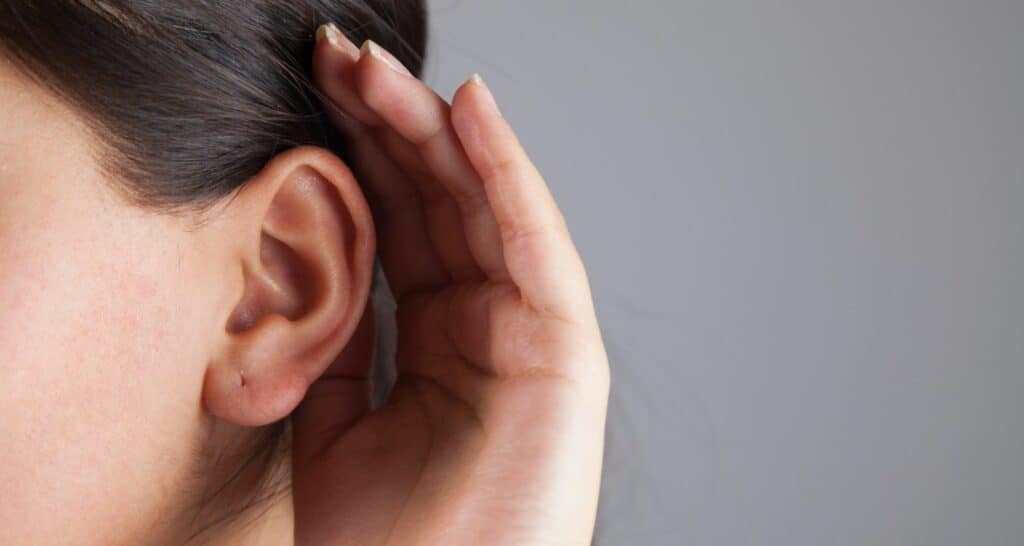Hearing loss is classified in many different ways. Audiologists and hearing health professionals have a variety of tools to categorize hearing loss, including the distribution of hearing loss between the two ears, the cause of onset, and the frequency ranges at which hearing is lost. One of the simplest and most useful ways to describe hearing loss is whether it is acquired or congenital. Acquired hearing loss occurs after birth, while congenital hearing loss—or, more precisely, congenital hearing impairment—occurs during the human development process prior to birth. Let’s take a look at this broad category of acquired hearing loss and the variety of causes that can bring it about. Some of these causes can happen in infancy or childhood, while others are more likely later in life. In some cases, acquired hearing loss can result in serious or profound impairment, including deafness. In other cases, the resulting hearing loss can be mild, and treatment can be quite effective in restoring communication ability.
Illnesses
Several illnesses can cause hearing loss across the lifespan. In some cases the hearing loss might be temporary, but in many cases the loss of hearing ability is permanent. Any damage to the tiny, hairlike organelles of the inner ear called stereocilia is considered irreversible within the ears. Although treatment can step in to assist hearing ability, the stereocilia do not repair themselves or regrow once they are bent, broken, or damaged. Some of the illnesses that can cause acquired hearing loss include meningitis, chicken pox, influenza, encephalitis, mumps, and measles. Many of these illnesses are common among children, but the good news is that vaccines are available that make most of these causes of acquired hearing loss quite rare. In addition to these illnesses, severe ear infections can cause acquired hearing loss, as well.
Ototoxicity
When a substance causes damage to the ears or hearing ability, it is considered an ototoxic chemical. Some of these chemicals are used in industrial processes, and the Occupational Health and Safety Administration (OSHA) has strict regulations around the use of ototoxic substances in the workplace. In addition to these chemicals, some medications are also known to be ototoxic. For instance, some cancer treatments use ototoxic substances in chemotherapy and other approaches. You can work with your doctor to consider the side effects of prescription drugs alongside the effectiveness of these treatments for serious illnesses.
Noise
Perhaps the most common cause of acquired hearing loss is exposure to noise. When we think about noise-induced hearing loss, we often think about exposure to very loud blasts of sound. Indeed, the sudden noise from an explosion, car accident, or gunfire can cause immediate hearing loss, but these are not the only noises that pose a risk to hearing ability. Noise exposure works in a combination of volume and duration to cause hearing loss. If you are exposed to a relatively quieter sound for an extended period of time, that sound can be sufficient to cause hearing loss, as well. One of the hidden culprits of noise-induced hearing loss in our time is the use of loud devices through earbuds and headphones. When the volume is too loud on these devices, we can still be tempted to wear them for an extended period of time. That combination of volume and duration can cause permanent acquired hearing loss from a simple recreational device. The jobs that can cause noise-induced hearing loss might surprise you, as well. Large industrial facilities can cause hearing loss, indeed, but other jobs that require you to work a full shift with loud volume can also cause acquired hearing loss. Servers in loud restaurants, workers in sports arenas, and even baristas who consistently use blenders at work can all be exposed to workplace noise that many do not realize is a risk to hearing.
If you are concerned about any of these causes of acquired hearing loss, why not schedule a hearing test? With that thorough diagnosis of your hearing ability, you can become aware of your baseline ability, a useful measure for future tests. If you have already developed hearing loss, this test will help us determine what line of treatment is right for your individual needs.





